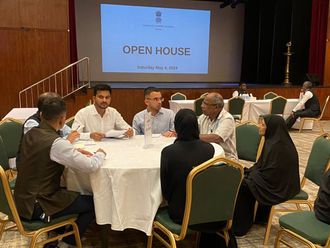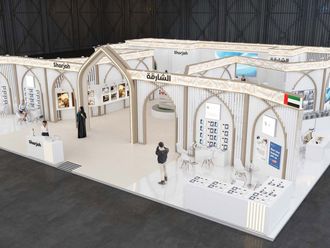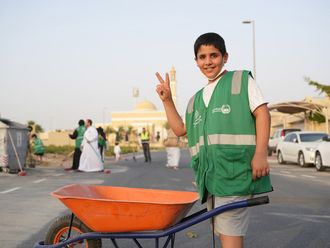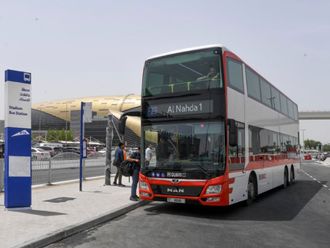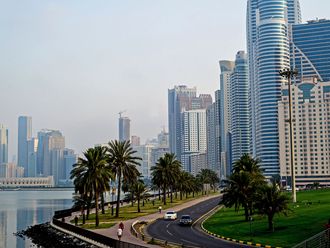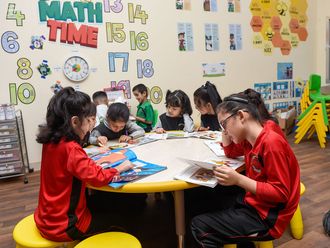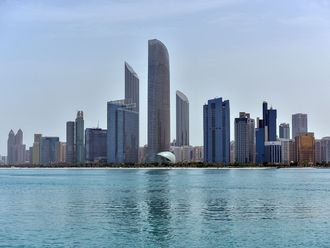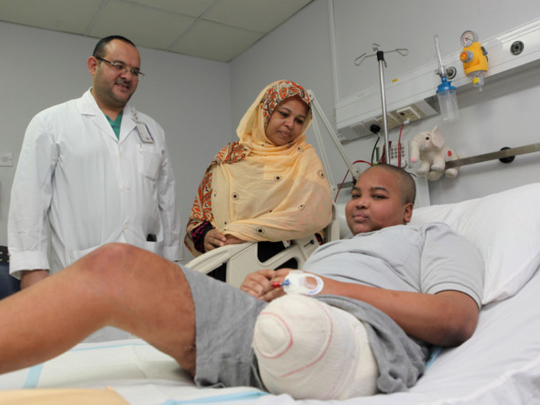
Dubai: “I want to be a doctor one day and treat patients like me,” says Mohammad Al Mugtaba with a warm smile that belies the terrible ordeal he is going through.
The 19-year-old Sudanese teenager has been struck by a severe strain of flesh-eating bacteria and has lost his left leg. As he sits up on his reclining bed in Room 1 of Ward 5 at Dubai’s Rashid Hospital, the stump of the amputated leg sticks out.
Dr Samir Mohammad Al Assar, Special Registrar of the General Surgery and Wound Care Unit, says the infection is now threatening to devour Mugtaba’s abdomen. He is also immuno-compromised which makes treatment difficult.
Mugtaba’s right leg exposes a patch of raw skin above the knee. It is evidence of the many rounds of grafting he has undergone to cover his open wounds. Once an active student who loved to play football, he has been grounded for the last four years. “Now I watch others play on television,” says the staunch Barcelona Football Club fan.
He speaks good English but he insists: “I know very little.”
Mugtaba’s tryst with hospitals began with an attack of suspected appendicitis in his native country. He also developed a painful swelling on his left foot, but it was not until much later when he was taken to Egypt that its cause was traced to the flesh-eating bacteria.
Neither he nor his mother Alawia know how he contracted the disease. “I don’t know why this is happening to my baby. All I can do is pray to God,” says Alawia, her eyes filled with tears.
Between her and her husband, they take turns to be with Mugtaba in Dubai and their two daughters back home.
Mugtaba’s father runs a small business in Sudan and the family can barely make ends meet.
Dr Al Assar says he too cannot say how Mugtaba was infected by the flesh-eating bacteria. “Necrotizing Fasciitis as it is called has unknown causes. It can be contracted from many sources. In Mugtaba’s case, we can’t say whether it had anything to do with the environment he was in or the severe suppression of his immunity.”
Mugtaba came to Rashid Hospital only eight months ago after a series of treatments in three countries — Sudan, Egypt and Saudi Arabia — failed.
“Dr Samir is the nicest doctor I have met so far,” says Mugtaba.
But there is only that much that the doctors here can do. While a multi-disciplinary team of specialists at Rashid Hospital has stabilised his condition, they do not have the required facilities to further treat him. “He is stable now but he needs to be managed in a more sophisticated centre for auto-immune diseases. We were in touch with a hospital in India. But now he will have to be taken to Germany or the UK as he needs a bone marrow transplant, besides other treatments.”
Desperate to give Mugtaba the best, the family has appealed for help, both in terms of finances and information about medical breakthroughs that can make Mugtaba turn the corner. “I have full faith in Allah,” says Alawia.
Those who wish to help Mugtaba may write to editor@xpress4me.com.


